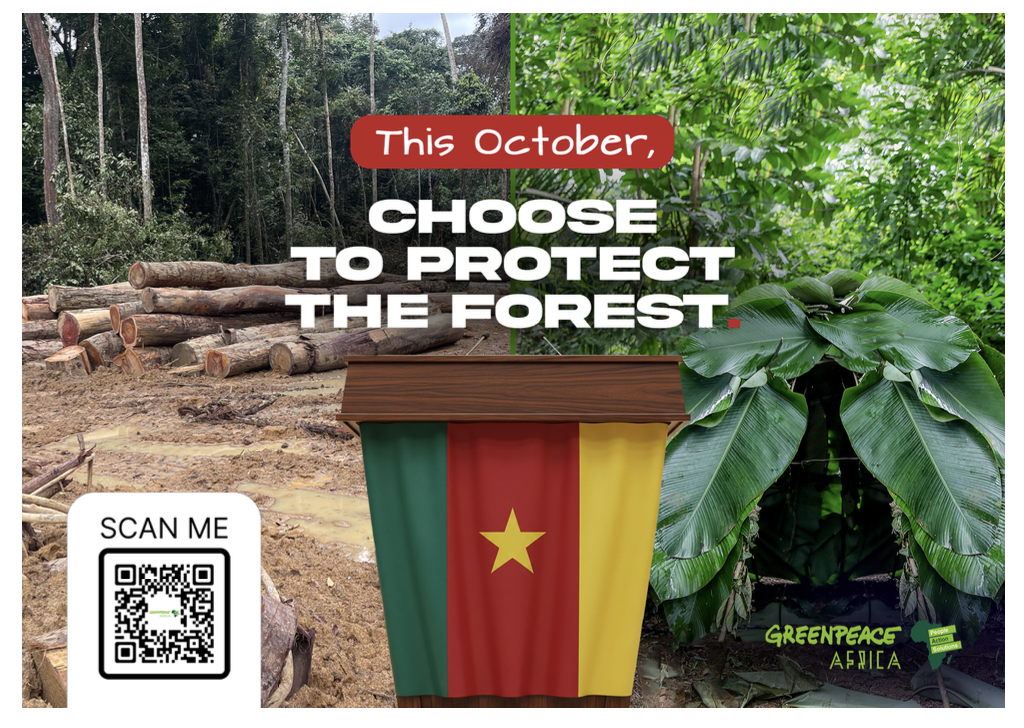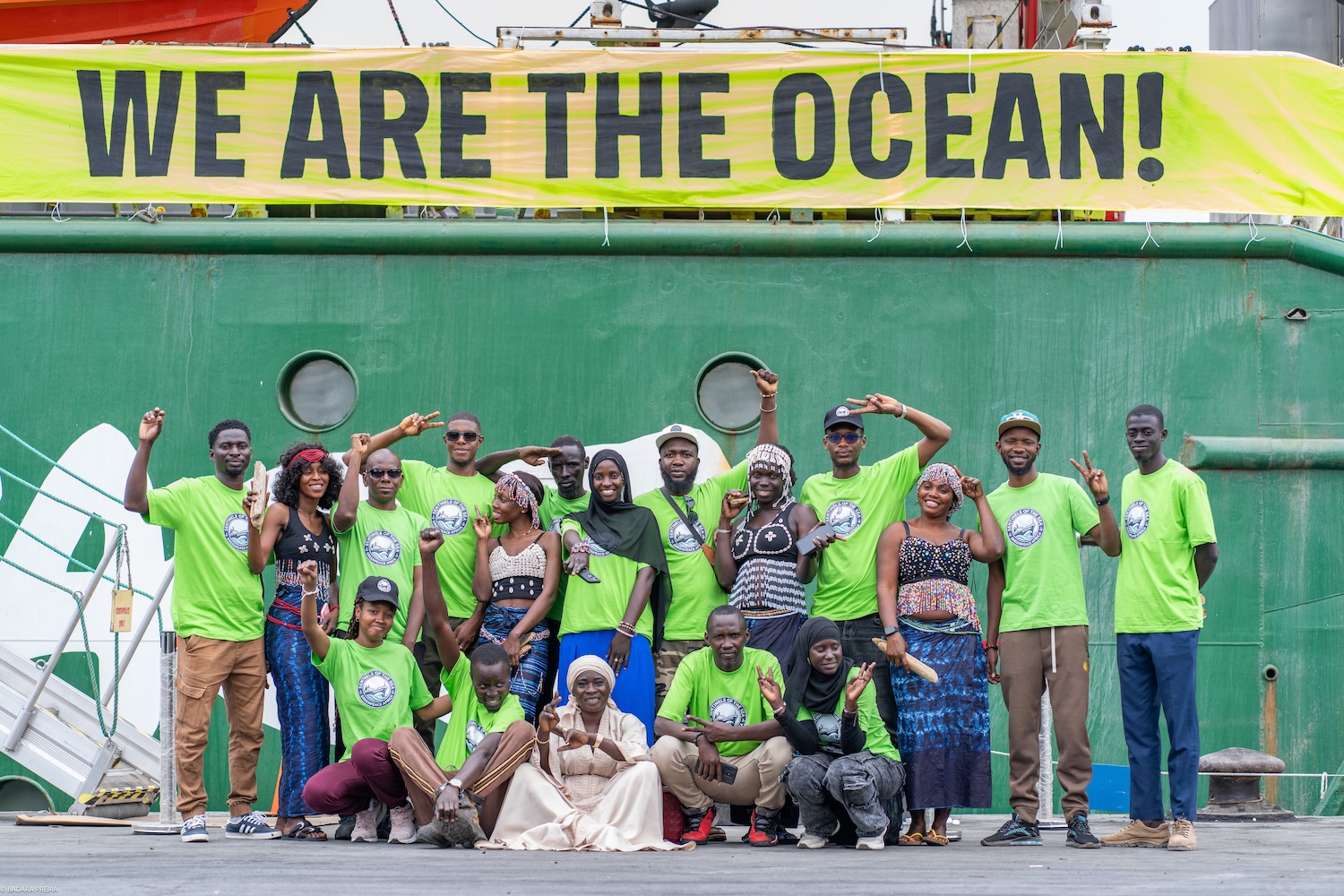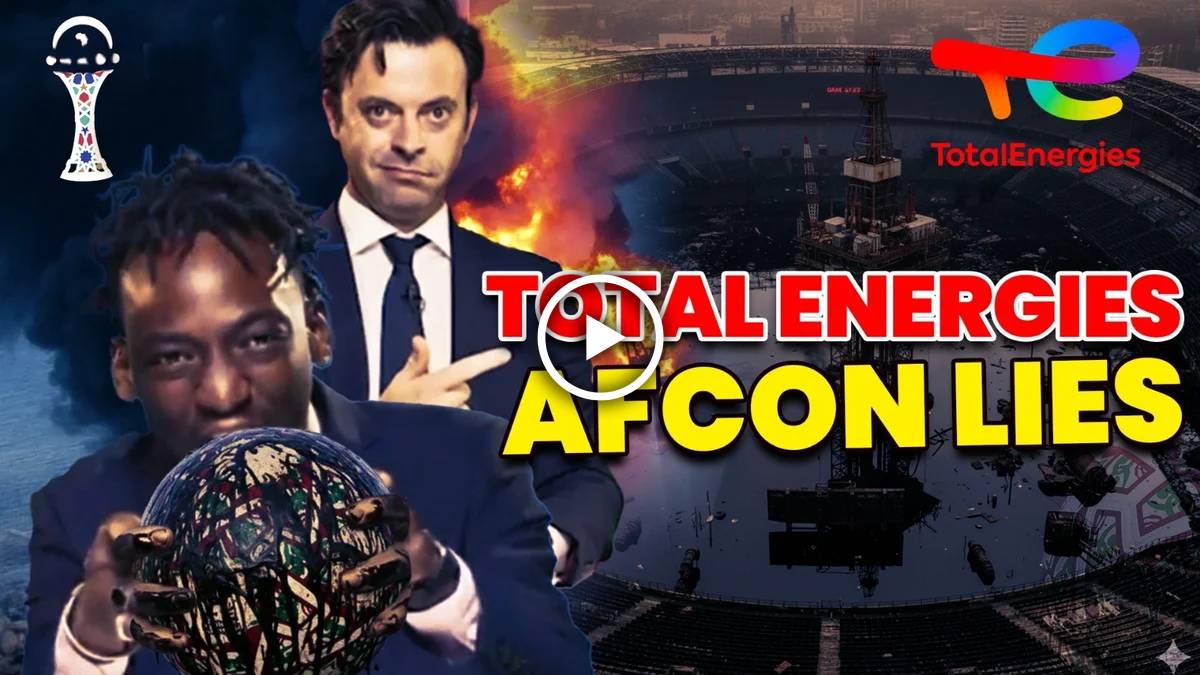
The Congo Basin, the world’s second-largest tropical rainforest after the Amazon, is a carbon reservoir of immense global and regional importance for climate regulation. It provides food, fresh water, shelter, and medicine to millions of people, and is home to countless wildlife species, including many that are endangered.
Yet, it faces growing threats linked to a colonial model of resource exploitation, which results in poor recognition of Indigenous and community heritage areas and no substantial improvement in the living conditions of local and Indigenous communities. Weak monitoring of resource-extraction activities, expanding illegality, corruption, and inequitable distribution of generated revenues negatively impact local and Indigenous communities, the climate, and the ecosystems they depend on.
Cameroon, one of the six countries of the Congo Basin, is also confronted with these challenges. In response, Greenpeace Africa launched the Climate Justice Movement (CJM) in Cameroon — a coalition that brings together civil society, local and Indigenous communities, and young people around a shared vision of environmental justice and sustainable governance of natural resources.
The Movement currently counts forty active members across the ten regions of Cameroon and focuses on four key areas of intervention: climate change adaptation and mitigation, climate justice, collaboration and partnerships, and education and advocacy.
On the eve of the presidential election, Cameroon stands at a decisive crossroads. The choices made today will shape the future of our environment, our communities, and our national development for generations to come.
It is time to embrace bold and visionary leadership — leadership that delivers concrete solutions to the urgent challenges facing our country. Now more than ever, Cameroon needs courageous and meaningful action to address its most pressing climate issues.
We, the Climate Justice Movement and the communities we represent, are not asking for promises but for concrete commitments. We do not call for speeches, but for bold, inclusive, and equitable policies. Climate change is not a secondary issue — it lies at the heart of our shared future.




